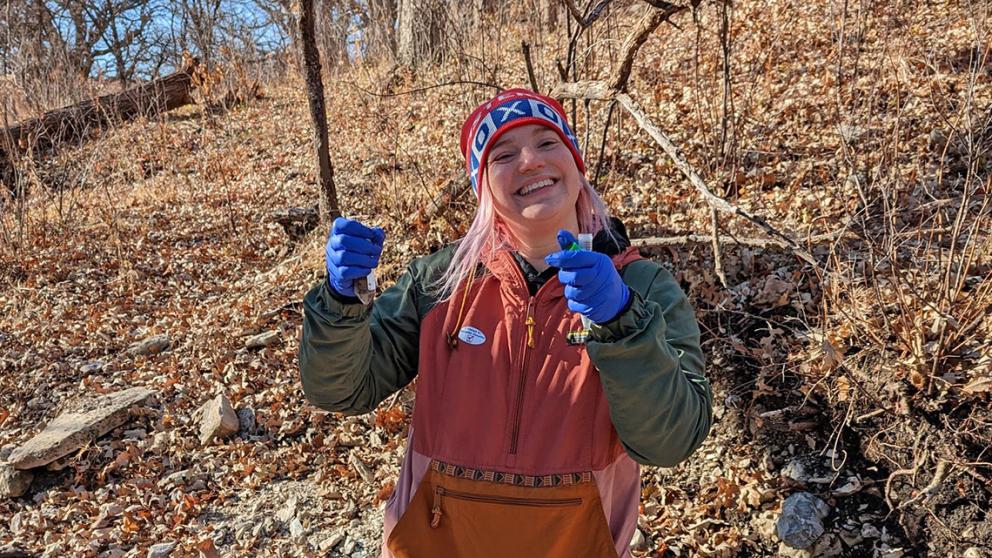News
More news
Featured Story
Seven students receive Kansas Biological Survey Student Research Awards for 2024
The Kansas Biological Survey & Center for Ecological Research at the University of Kansas has awarded $7,500 in funding this spring for student research to be conducted this year. Seven students will receive assistance through the research center’s 2024 Student Research Awards.

More news
All over the map: KU project highlights "incredible variety" of Kansas environment
This article, published in the "Rock Chalk Review" section of the Winter 2023 issue (paper and online to subscribers) of Kansas Alumni Magazine, is a version of the Nov. 16, 2022, KU News release on the Mapping Kansas Ecosystems website developed by Dana Peterson and Jennifer Moody.
Monarch butterfly numbers plummet despite recovery last winter, but 1 year never tells the whole story
The number of monarch butterflies that have survived the migration to Mexico this fall appears to have plummeted.
Postdoc honored with KU achievement award
Vadim Karatayev studies ecosystem resilience, including land management strategies. His most recent work reveals that warmer climates trigger the collapse of giant kelp forests all across California.
Keystone pipeline spills in Kansas, dirtying creek and causing oil prices to spike
Comments by one of our scientists added to coverage of the spill: more specific info is needed to understand the effect of oil in local waters.
Couple establishes professorship in support of Monarch Watch with $1.4M gift, encourages others to support the cause
Orley “Chip” Taylor, KU professor emeritus of ecology & evolutionary biology, and his wife, Toni, have made a $1.4 million gift to establish the Chip and Toni Taylor Professorship in support of Monarch Watch.
Kansas scientists are testing jacuzzi-like water jets to save a reservoir
All Things Considered aired this version of a recent Kansas News Service story on silted-in reservoirs, water injection dredging at Tuttle Creek, and concerns about the plan.
Learning to live with toxic algal blooms in Kansas
Toxic blue-green algae threaten cattle and have collectively robbed Kansans of thousands of hours of recreation. They drain millions from lake-based economies when outbreaks close lakes to public access. Drinking water is susceptible to the toxin, too, rendering it smelly and foul-tasting.
The world’s roots are getting shallower
Plant roots act as engineers for Earth’s surface, breaking up bedrock, transporting water and nutrients, and stabilizing landscapes. They’re so important that scientists have hypothesized that their evolution, beginning around 415 million years ago, altered landscapes and the course of Earth’s…
KU researchers launch new Kansas ecosystems online teaching tool
Dana Peterson hopes the new ArcGIS StoryMap, "Mapping Kansas Ecosystems," will draw attention to the wide range of landscapes across the state — and serve as an online resource in classrooms, libraries and homes, for all ages.
Meet the students working to keep the endangered monarch butterfly population alive
After years of declining populations, the monarch butterfly was recently declared endangered. CBS News correspondent Debra Alfarone meets the next generation of activists working to keep the insect population alive.